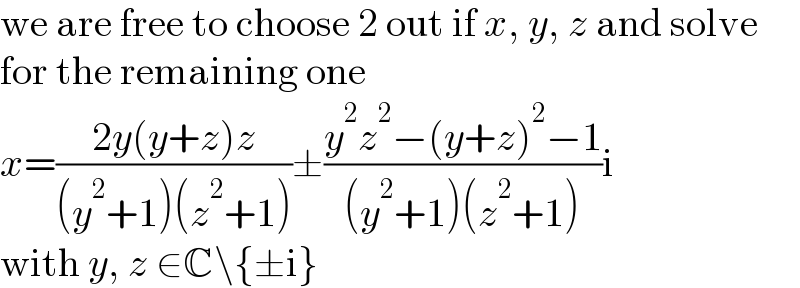
Question and Answers Forum
Question Number 175154 by Shrinava last updated on 21/Aug/22

Commented by mr W last updated on 21/Aug/22

Answered by MJS_new last updated on 21/Aug/22

| ||
Question and Answers Forum | ||
Question Number 175154 by Shrinava last updated on 21/Aug/22 | ||
 | ||
Commented by mr W last updated on 21/Aug/22 | ||
 | ||
Answered by MJS_new last updated on 21/Aug/22 | ||
 | ||
| ||